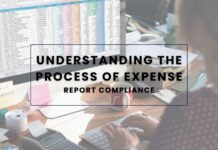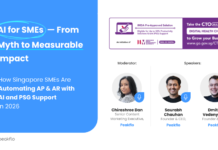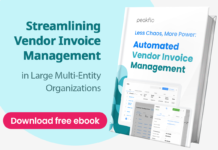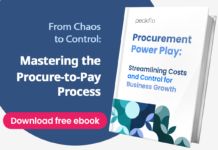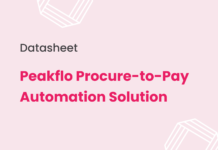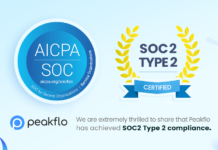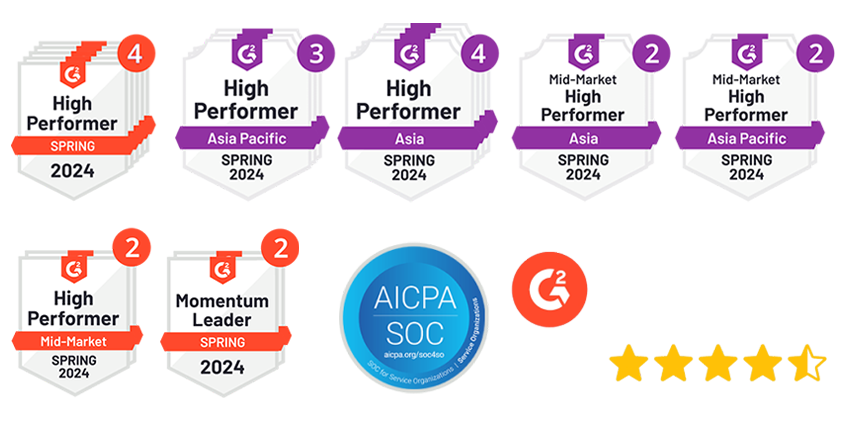Sales reps spend only 28% of their time selling, with the rest consumed by administrative tasks and non-revenue-generating work. This inefficiency can be a major headache for businesses struggling to scale their sales efforts. AI sales agents are changing how sales teams operate by automating routine activities and engaging prospects around the clock.
Businesses that have implemented AI into their sales processes have automated up to 90% of all prospecting tasks, while experiencing up to a 35% reduction in customer service costs and a 32% increase in revenue. These results stem from AI’s ability to engage with customers in a personalized manner while providing consistent service across different time zones. AI sales agents can simultaneously interact with thousands of prospects, allowing your business to scale operations without proportionally increasing headcount.
Understanding how to implement AI sales technology and manage these systems effectively is crucial for maintaining a competitive advantage and ensuring proper sales operations. This guide explores practical ways you can use AI sales agents to boost your results in 2025.
What is an AI Sales Agent?
AI sales agents represent autonomous applications that analyze and learn from your sales and customer data to perform tasks with minimal or no human intervention. Unlike conventional software that simply executes pre-programmed workflows, these intelligent systems make decisions and take action independently based on data analysis.
These systems use technologies like machine learning, natural language processing (NLP), and large language models (LLMs) to enhance sales processes and improve customer interactions. These technologies enable agents to understand context, learn from previous interactions, and make increasingly sophisticated decisions over time.
How AI sales agents differ from traditional tools
Traditional sales tools follow predefined rules and require continuous human guidance, whereas AI sales agents can operate autonomously. This fundamental difference creates several key distinctions:
- Data processing capabilities: AI sales agents can analyze massive amounts of data within seconds, identifying buying patterns, flagging promising leads, and recommending next steps without the guesswork that often accompanies traditional methods. They extract real-time insights from customer interactions, allowing businesses to predict buying behaviors and optimize their sales pipeline.
- Learning ability: AI sales agents can learn continuously from every interaction. They use machine learning algorithms to improve and personalize conversations over time, unlike traditional sales methods that lack consistent ways to document and apply learnings from past interactions.
- Personalization at scale: An AI sales agent can simultaneously manage thousands of conversations while maintaining consistent quality—something no human team can match. Businesses adopting AI have reported up to a 35% reduction in customer service costs and a 32% increase in revenue, demonstrating the effectiveness of this scalable approach.
- Predictive capabilities: AI sales agents predict future trends by examining customer engagement, historical conversions, and buying behaviors. They can forecast which prospects are most likely to convert, allowing sales teams to optimize their outreach strategies.
The role of AI in modern sales teams
AI agents serve various crucial functions in today’s sales landscape:
- Task automation: AI sales agents automate repetitive tasks such as lead qualification, outreach, follow-ups, and CRM updates. According to Forbes, businesses that implemented AI sales agents into their processes were able to automate up to 90% of all prospecting tasks.
- Supporting human representatives: Rather than replacing humans, AI sales agents complement human efforts by handling routine activities. This allows sales professionals to focus on relationship-building, deal negotiations, and other high-value interactions. AI can provide real-time coaching during calls, suggest content for specific scenarios, and recommend next best actions based on deal progress.
- Enhancing customer experience: AI sales agents provide 24/7 support through natural, human-like conversations. They answer questions in real-time, reduce wait times, and ensure consistent communication across all channels, creating a more seamless experience for prospects and customers.
- Data-driven decision making: With AI analyzing large volumes of sales and customer data, teams gain deeper insights into individual customer behaviors and needs. This enables more informed decision-making when targeting prospects or creating sales strategies.
- Scaling operations: AI sales agents allow businesses to scale their sales efforts without proportionally increasing headcount or costs. They can engage with thousands of leads simultaneously through automated email outreach, chatbots, and other channels.
Sales teams integrating these AI capabilities are finding new efficiencies across the entire sales cycle—from prospecting and qualification to closing deals and maintaining customer relationships.
Types of AI Sales Agents
Understanding the distinct types of AI sales agents available is crucial for making strategic implementation decisions. Not all AI sales agents are created equal—they vary significantly in their capabilities, autonomy levels, and roles within your sales ecosystem.
1. Autonomous agents: fully independent performers
Autonomous AI sales agents function as independent virtual team members that can complete entire sales processes without human intervention. These sophisticated systems perceive their environment, make decisions, and take actions based on those decisions with minimal oversight.
Autonomous agents excel at handling repetitive, time-intensive tasks around the clock. They can autonomously:
- Qualify leads and move them through your pipeline
- Answer product questions and handle objections
- Book meetings directly into your sales reps’ calendars
- Engage prospects across multiple channels and languages
What sets autonomous agents apart is their ability to operate proactively. Instead of waiting for commands, they can independently initiate workflows, analyze data, and make decisions based on predefined goals. For instance, a fully autonomous SDR (Sales Development Representative) agent can scrape LinkedIn for prospects, create database entries, write personalized emails, and manage responses—all without human input.
Businesses that deploy autonomous agents often see significant efficiency gains as these AI systems work continuously, handling high-volume, transactional sales environments where scale and speed are critical.
2. Assistive agents: supporting human reps
Assistive AI sales agents (often called AI sales assistants) function as intelligent co-pilots that enhance human performance rather than replace it. These agents help salespeople complete specific tasks but don’t work independently.
Assistive agents typically provide support by:
- Drafting personalized emails and outreach messages
- Recommending relevant sales content for specific scenarios
- Suggesting the next best actions during customer interactions
- Providing real-time coaching during calls
Assistive agents require human review and action before completing tasks. For example, an assistive agent might draft a prospecting email, but the sales rep must review and approve it before sending. This collaborative approach preserves the human touch in customer relationships while eliminating much of the tedious work.
According to research, assistive agents help teams engage more personally with customers, with 71% of customers expecting such personalized interactions. Their primary value lies in augmenting human capabilities rather than replacing them.
Choosing the right type for your sales process
Selecting between autonomous and assistive agents depends largely on your specific business needs and sales process complexity. Consider these factors when making your decision:
- Volume of interactions: For high volumes of simple inquiries, autonomous agents excel. If you handle fewer but more complex issues, assistive agents that enhance human interaction may be more suitable.
- Task complexity: Autonomous agents are ideal for repetitive, clearly defined workflows like lead qualification or meeting scheduling. For nuanced situations requiring empathy or complex decision-making, assistive agents supporting human reps are more effective.
- Customer relationship importance: When building strong relationships is crucial to your sales process, assistive agents that enhance human interaction align better with your goals.
- Budget and resources: Autonomous agents can often reduce operational costs by handling tasks independently, while assistive agents may require more investment in training and management.
Many organizations find that a hybrid approach works best—using autonomous agents for initial prospecting and lead qualification, then transitioning to human reps supported by assistive agents for relationship-building and deal closing.
By strategically deploying both types of AI sales agents in your process, you can automate routine tasks while maintaining the human connection that remains essential to complex sales relationships.
8 Simple Ways AI Sales Agents Boost Sales in 2025
Modern businesses are discovering that implementing AI sales agents provides concrete, measurable benefits across the entire sales process. Here are eight specific ways these digital team members can help your business close more deals in 2025.
1. Qualify leads automatically
AI sales agents excel at qualifying leads using predefined criteria to filter and prioritize prospects with high purchase intent. These agents analyze engagement patterns, prescribing behaviors, and competitive market shifts to deliver actionable insights. Through smart conversations, AI agents ask vital questions, gathering key lead data without manual intervention.
This ensures your sales team focuses exclusively on high-converting opportunities. Companies using AI for lead qualification have reported a 50% increase in sales opportunities and a 40% reduction in cost per lead.
2. Personalize outreach at scale
No more cold call fatigue. Voice AI Agents reach out to leads at scale, qualify them, and schedule demos or handovers to your reps—automatically.
AI enables tailored interactions based on each prospect’s unique characteristics, behavior, and preferences. These systems analyze data from multiple sources, including website interactions, email responses, and social media engagement, to craft messages that resonate with individual prospects.
This hyper-personalization translates to higher engagement—organizations using AI-driven outreach have seen reply rates increase by 20-40%.
3. Schedule meetings without human input
AI scheduling has changed how sales teams coordinate with prospects. Tools like Kronologic can automatically schedule meetings at times when both parties are likely available, eliminating the back-and-forth that typically delays sales processes.
If a prospect objects via email, natural language processing detects rescheduling intent and updates the invite accordingly. This automation reduces scheduling conflicts by 30% while increasing meeting attendance by 20%.
4. Provide real-time coaching to reps
Modern AI sales coaching offers role plays, pitch practices, and knowledge reviews with autonomous feedback. These systems analyze sales calls in real-time, providing guidance on tone, clarity, empathy, and objection handling.
For example, real-time assistance during live calls helps reps reference relevant customer stories or product information precisely when needed. This approach has been shown to cut onboarding time in half for new representatives.
5. Update CRM and sales data instantly
AI agents eliminate manual data entry by automatically capturing customer data from emails, forms, interactions, and call recordings. AI agents monitor customer interactions across every channel—from call transcripts to messages—and organize them into CRM records.
This automation has allowed companies to eliminate 90% of manual CRM data entry while achieving near-perfect data quality. Since AI works continuously, your CRM stays current with real-time updates.
6. Recommend next-best actions
Next-best-action models guide sales teams toward optimal activities. These AI systems analyze customer data to determine the most relevant and meaningful action for each prospect. They provide recommendations for:
- Personalized outreach approaches
- Follow-up timing and frequency
- Lead prioritization based on conversion likelihood
- Optimal communication channels
Organizations implementing next-best-action recommendations have reported sales growth of 4-10% and engagement improvements of 30-40%.
7. Forecast sales with high accuracy
AI-powered forecasting analyzes key factors like win rates, customer activity, and deal velocity to predict future trends with remarkable precision. This advanced analysis helps companies understand projected versus desired outcomes and refine sales focus to improve win rates.
The impact is significant—83% of sales teams using AI experienced revenue growth compared to just 66% of teams without AI. This predictive capability also helps identify risks in deals and prioritize high-value opportunities.
8. Engage leads 24/7 across channels
AI sales agents operate continuously without fatigue, addressing customer inquiries and engaging potential leads promptly, regardless of time zones. They maintain consistent communication across multiple channels—websites, mobile apps, messaging platforms, and social media—ensuring seamless customer interaction everywhere.
This around-the-clock availability has contributed to a 30% increase in customer satisfaction while keeping prospects from going cold due to delayed responses.
Real-World Examples of AI in Sales
Companies across different industries are implementing AI sales agents with measurable results. These real-world applications show how AI is reshaping sales processes and delivering concrete outcomes.
1. AI sales rep in B2B SaaS
B2B software companies are leading AI sales adoption. Use AI to analyze sales calls, meetings, and emails, extracting insights about customer objections, price negotiations, and stakeholder involvement. AI system forecasts sales with greater precision than standard CRM methods, helping teams identify at-risk deals and present appropriate solutions.
AI Agent investigates business leads and prepares customized communications, eliminating repetitive tasks from sales workflows. They generate personalized email content from previous conversations, enabling faster responses with relevant messaging. AI-powered sales agents for outreach personalization, resulting in a 30% increase in qualified leads.
2. AI salesperson in e-commerce
E-commerce businesses use AI sales agents to tackle abandoned cart recovery through immediate follow-up with customers who left items unpurchased. These AI assistants provide step-by-step guidance on completing transactions and collect valuable insights about checkout friction points.
E-commerce AI representatives answer product questions, assist with sizing inquiries, and offer tailored recommendations. They also support post-purchase processes like returns and shipping status updates, helping move customers confidently from browsing to buying.
3. AI sales agent in real estate
Real estate professionals increasingly rely on AI to maintain competitiveness. Forward-thinking agents use AI to craft compelling listing descriptions and automate marketing content creation, freeing time for client-focused activities.
Tools use predictive analytics to identify likely sellers with remarkable 72% accuracy, helping agents focus prospecting efforts on high-potential opportunities.
4. AI sales team support in financial services
Financial institutions use AI to enhance relationship management and customer engagement. For example, TBI bank deployed “Victoria AI” to assist agents with customer interactions, tailoring financial product offerings based on each customer’s segment and usage history. The AI agent handled over 10,000 leads on peak days and generated more than $1 million in additional business volume.
Another bank saw customer engagement jump three to four times, primarily because the AI-generated messaging was rooted in real-time customer behavior, making recommendations more connected and authentic.
Benefits of Using AI Sales Agents
Companies implementing AI sales agents are experiencing tangible, measurable returns across multiple performance indicators. The numbers tell a compelling story about why businesses are rapidly adopting this technology in 2025.
1. Save time and reduce manual work
Sales professionals using AI tools save up to 2 hours and 15 minutes daily on administrative tasks. This reclaimed time allows your team to focus on relationship-building and strategic activities rather than data entry. HubSpot research reveals that sales teams using AI automation gain more than two hours per day on average. For a ten-person sales team, this translates to over 2,600 additional selling hours annually.
AI sales agents handle routine tasks like updating CRM records, scheduling meetings, and qualifying leads without human intervention. Businesses report that sales representatives spend 70% less time on non-revenue-generating activities.
2. Improve lead conversion rates
Organizations using AI for lead scoring report a 30% increase in conversion rates and a 40% reduction in sales cycle length. This improvement stems from AI’s ability to identify high-potential prospects and engage them at precisely the right moment.
Keep the pipeline warm with timely, consistent follow-ups based on customer behavior or CRM triggers. Studies show responding within five minutes increases conversion rates by 900% compared to waiting 30 minutes.
3. Enhance customer satisfaction
AI sales agents directly impact customer experience. Companies using AI solutions report a 7% improvement in customer satisfaction scores. This boost occurs because AI agents provide 24/7 availability, ensuring leads receive immediate responses regardless of time zone or business hours.
4. Scale sales efforts without hiring more reps
Perhaps the most compelling benefit is the ability to grow revenue without proportionally expanding your team. AI automation offers a different path: expanding capacity without expanding staff. Organizations implementing AI report a 6.2% increase in sales alongside a 7.2% reduction in overhead costs.
AI never sleeps, ensuring constant lead engagement across all channels. This always-on capability means your business can handle substantially more prospects without hiring additional personnel. When your existing team focuses exclusively on high-value activities while AI handles routine tasks, your operational efficiency dramatically improves.
Best Practices for Using AI in Sales
Implementing AI sales agents requires strategic planning to maximize their effectiveness. Organizations that follow these best practices often see higher adoption rates, better results, and smoother integration into existing workflows.
1. Start with a focused use case
Attempting to implement AI across your entire sales process simultaneously often leads to confusion rather than clarity. Begin with one high-impact area—perhaps lead qualification or email outreach—before expanding to other stages. This phased approach enables controlled testing and smoother integration throughout your organization.
Define specific goals and measurable KPIs that align with your sales objectives. For instance, focus on using sentiment analysis to improve team performance or AI data analysis to increase lead quality, allowing you to track concrete progress as your implementation matures.
2. Train AI with real sales data
Generic inputs inevitably produce generic results. Feed your AI sales agent with real-world assets like successful email sequences, call transcripts, and frequently asked questions from your actual sales process. This contextual information dramatically improves response accuracy and keeps messaging aligned with your specific audience.
For optimal results, create a robust data foundation comprising core CRM data, enrichment information, historical outreach records, and trigger data. Well-trained models typically require at least 30,000 labeled interactions per customer segment.
3. Maintain brand voice in AI communication
Your AI salesperson must communicate in a voice consistent with your brand identity. Create a comprehensive voice guide including examples of on-brand and off-brand content that helps the AI understand your preferred tone, whether formal, conversational, or technical.
Regularly feed the system with high-quality existing content that exemplifies your brand voice. Review and adjust AI-generated content as needed to maintain consistency across all customer touchpoints.
4. Set clear handoff rules for human reps
Define precise scenarios requiring human involvement, such as complex pricing questions, specific objections, or unusual requests. Configure automatic alerts and routing rules for these situations to facilitate smooth transitions that preserve customer context.
When handoffs occur, ensure human representatives have complete access to previous conversation history. This eliminates frustrating repetition for customers and maintains relationship continuity throughout their journey.
5. Review AI performance regularly
Unsupervised AI can deliver inconsistent results over time. Establish a routine where sales team members review approximately 100 random AI interactions weekly. This ongoing quality assurance helps identify gaps in responses, outdated messaging, or off-brand replies that require correction.
Organizations that consistently monitor and refine their AI systems typically achieve higher sales success and maintain a competitive edge in increasingly AI-driven markets.
What’s Next: Trends in AI Sales for 2025 and Beyond
Looking ahead, several emerging trends will reshape how AI sales agents function in your business. These developments will enhance existing capabilities while creating new opportunities for sales teams to improve their performance and efficiency.
1. Multilingual and omnichannel agents
The next generation of AI sales representatives will switch effortlessly between languages and platforms. These systems will conduct sales conversations across email, chat, SMS, social media, and voice channels without losing context or requiring configuration changes. This seamless transition between communication methods mirrors how modern customers naturally move between platforms throughout their day, creating a more cohesive buying experience regardless of how prospects choose to engage.
For businesses operating in global markets, this capability means your AI agents can handle international prospects in their native languages while maintaining consistent messaging across all touchpoints.
2. Deeper CRM integration
How will AI sales agents become more embedded in your existing systems?
AI sales agents will become increasingly integrated within CRM ecosystems rather than functioning as standalone tools. These systems will actively contribute to and pull from unified customer data platforms, enabling AI to make more informed decisions based on holistic customer profiles that include purchase history, support interactions, marketing engagement, and social media activity.
This consolidated approach eliminates the data silos that currently limit AI effectiveness, allowing your sales team to access complete customer context at every interaction point.
3. AI sales agents joining live calls
AI sales teams will soon participate actively in live sales conversations. These virtual assistants will analyze real-time discussions, identifying opportunity signals and objection patterns that human representatives might miss. They’ll discreetly suggest responses, product information, or competitive comparisons precisely when needed without interrupting the natural flow of conversation.
This collaborative approach combines human relationship skills with AI’s analytical capabilities, providing your sales reps with real-time support during crucial customer interactions.
4. No-code customization for non-tech users
Sales professionals will gain the ability to customize their AI salesperson without technical expertise. No-code interfaces will allow teams to adjust conversation flows, response styles, and qualification criteria through intuitive visual builders. This democratization of AI configuration empowers sales managers to rapidly adapt their virtual team members to changing market conditions, campaign focuses, or competitive landscapes without dependency on technical teams.
The result is greater flexibility and faster implementation of AI solutions tailored to your specific business needs and sales processes.
Peakflo Voice AI Agents: Supercharging Sales Conversations
If your sales reps are buried in repetitive tasks and missing opportunities due to delayed outreach, Peakflo’s Voice AI Agents offer the solution to scale personalized conversations without scaling your headcount.
What Makes Peakflo Voice AI Agents Different?
Unlike basic chatbots or scheduled emails, Peakflo’s voice AI agents are autonomous, multilingual, and omni-channel-ready, engaging prospects in natural, human-like conversations across phone, SMS, WhatsApp, and email.
These AI sales agents are purpose-built to:
- Handle prospecting at scale: Reach out to thousands of leads simultaneously, qualify them, and schedule meetings without any manual input.
- Engage 24/7: Whether it’s a follow-up at 2 AM or a response in the prospect’s native language, Peakflo’s agents never sleep.
- Deliver real-time insights: Every conversation is logged, analyzed, and fed into your CRM or ERP, enabling smarter decision-making and accurate forecasting.
- Route only hot leads to human reps: Peakflo’s agents identify and escalate qualified opportunities, so your team focuses on closing, not chasing.
Use Cases That Drive Revenue
- Automated SDR follow-ups to reduce cold lead drop-offs
- Inbound lead qualification through voice, SMS, or WhatsApp
- Demo scheduling directly on your sales reps’ calendars
- Order confirmations, updates, and renewals handled autonomously
- Customer reactivation campaigns with personalized messaging
With Peakflo, you’re not just automating messages—you’re building a self-learning, autonomous sales engine. Want to see Peakflo Voice AI Agents in action? Schedule a personalized demo here. Discover how your sales team can do more, with less.
Conclusion
AI sales agents represent a significant shift in how businesses approach sales operations. These intelligent systems free your team from administrative burdens while simultaneously improving conversion rates and customer satisfaction. They allow you to scale operations without proportionally increasing headcount—a clear competitive advantage in today’s market.
The numbers speak for themselves—from saving over two hours daily on administrative tasks to increasing conversion rates by 30% and improving customer satisfaction by 7%. Companies across industries have already demonstrated substantial returns on their AI investments.
AI works best as a complement to human skills rather than a replacement. The most successful organizations use AI to handle routine tasks while directing human creativity and relationship-building talents toward high-value interactions. This balanced approach delivers efficiency at scale without sacrificing the personal connections that drive sales success.
When properly implemented, AI sales agents become invaluable team members who work tirelessly, learn continuously, and perform consistently. For forward-thinking businesses, the question is no longer whether to adopt AI sales technology, but how quickly you can integrate it into your processes to stay ahead of competitors who are undoubtedly doing the same.
By implementing these strategies, businesses can effectively manage AI sales agents and ensure that their sales operations are optimized for growth in 2025 and beyond.
FAQs
Q1. How will AI sales agents impact businesses in 2025?
AI sales agents are expected to significantly boost efficiency and sales performance. They can automate routine tasks, qualify leads, personalize outreach at scale, and provide 24/7 customer engagement. This allows human sales reps to focus on high-value activities and relationship building.
Q2. Can AI completely replace human sales representatives?
While AI can handle many sales tasks, it’s unlikely to fully replace human sales reps. AI excels at data analysis, automation, and routine interactions, but human skills like emotional intelligence, complex problem-solving, and building trust remain crucial in sales, especially for high-value deals.
Q3. What are the key benefits of implementing AI sales agents?
The main benefits include time savings (up to 2 hours daily per rep), improved lead conversion rates (up to 30% increase), enhanced customer satisfaction, and the ability to scale sales efforts without proportionally increasing headcount. AI agents also provide 24/7 availability and consistent performance.
Q4. How can businesses effectively integrate AI into their sales processes?
To successfully integrate AI, start with a focused use case, train the AI with real sales data, maintain your brand voice in AI communications, set clear handoff rules to human reps, and regularly review AI performance. A phased approach allows for controlled testing and smoother integration.
Q5. What emerging trends in AI sales technology can we expect beyond 2025?
Future trends include multilingual and omnichannel AI agents, deeper CRM integration, AI assistants joining live sales calls, and no-code customization options for non-technical users. These advancements will make AI sales technology more accessible and effective for businesses of all sizes.


